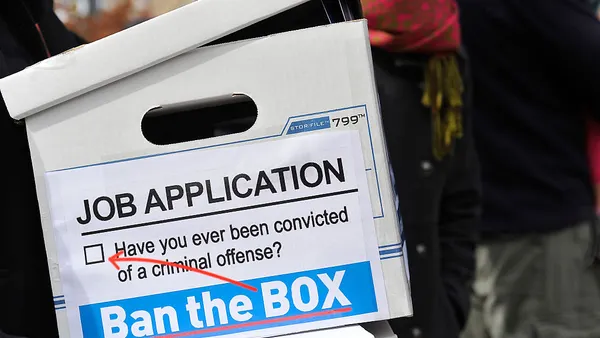UPDATE: Jun. 25, 2025: The parties in Leavines v. Ollie's Bargain Outlet, Inc reached a settlement after mediation on June 23, 2025.
Dive Brief:
- Ollie’s Bargain Outlet must face claims alleging gender and disability discrimination, as well as retaliation from a manager, a judge ruled Tuesday.
- The lawsuit, Leavines v. Ollie’s Bargain Outlet, Inc., alleged quid pro quo sexual harassment — demands for sexual favors in exchange for more hours on the schedule — and retaliation for complaining.
- The employer told the court the employee had already received more shifts before the harassment occurred and that there was no causal relationship between her complaints and her subsequent termination. A judge however, was not persuaded.
Dive Insight:
Per the court documents, the plaintiff in Leavines had a neurological condition that prevented her from accurately assessing social situations.
The plaintiff relayed to her mother that her manager was flirting with her; her mother allegedly reached out to the manager to advise him against taking advantage of her daughter. Shortly thereafter, the employer cut her hours.
When a co-worker sexually harassed her, the plaintiff wrote a letter detailing his conduct to her direct supervisor and a manager at another Ollie’s location, but allegedly, nothing was done.
Her manager then allegedly propositioned the plaintiff for oral sex via Snapchat, promising more hours on the schedule.
The plaintiff was fired just weeks later, while reportedly being told explicitly by her manager that she had done nothing wrong.
Sexual harassment claims are pervasive across industries; these claims, made often with the U.S. Equal Employment Opportunity Commission, may involve quid pro quo sexual relationships at work.
Legal precedent makes it clear that an employee’s decision to engage in a sexual relationship with a co-worker doesn’t necessarily mean that no coercion or Title VII violation took place.
Lawyers have often emphasized the importance of documentation when it comes to investigating harassment complaints, as well as the importance of implementing remedial measures and preventing retaliation.














